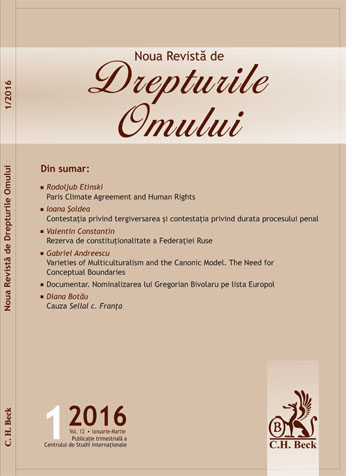Cathrine Holst (ed.), Experții și deciziile politice
Cathrine Holst (ed.), Expertise and Democracy
Author(s): Lucian BojinSubject(s): Politics / Political Sciences, Philosophy, Social Sciences, Law, Constitution, Jurisprudence
Published by: Centrul de Studii Internationale
Keywords: Cathrine Holst; Expertise and Democracy; epistocracy; ARENA Centre for European Studies
Summary/Abstract: The work coordinated by Cathrine Holst, Expertise and Democracy (2014), brings together 16 chapters, plus introduction signed by the coordinator. The volume is one of the results of a five-year research project entitled "Why not epistocracy? Political legitimacy and 'the FACT of expertise' - (EPISTO), developed by ARENA Centre for European Studies of the University of Oslo. The studies collected in volume can be divided into two categories: works that address the general issue of the role of expertise in political, with conceptual tensions accompanying basis, and works rather applicable, which discuss specific issues of experts’ involvement in political decisions at EU level. Evans shared decision-making process in two phases: technical and policy stage. In the first, the experts’ arguments are brought based on deliberation to take place in the second phase. Evans is skeptical about the involvement of experts in the second phase, that of moral assessments and other considerations that lead to a decision. He believes that, political decisions has to overcome [Trump] on the technical.” In Evans opinion, the experts must “be heard, but be not listened.” Unlike Cathrine Holst, he did not like the idea that experts could “to filter” political decisions by limiting the number of available options, between which must operate election. However, Evans said that when a policy decision removes the technique one, it need to do explicit and must clearly show that it does. The reason is that policymakers who deviate from expert advice must take explicit responsibility for this option. The second part of the volume contains applied studies on the involvement of experts’ political decisions at EU level. Two of the studies deal the problem group of external experts to that the European Commission appeals to gather data underlying its political formulation and even for political formulation. While recourse to this solution is justified by the administrative failure, critics of this mode of operation have pointed the risk of “capture” of the legislative process by interest groups represented by external experts.
Journal: Noua Revistă de Drepturile Omului
- Issue Year: 12/2016
- Issue No: 1
- Page Range: 125-131
- Page Count: 7
- Language: Romanian

